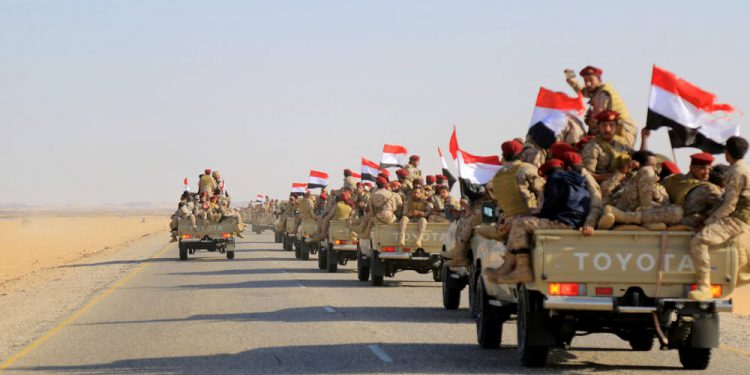Yemeni army condemns 4,276 violations of Houthi truce
The truce, which is the longest since the war started, went into effect on April 2 and reduced violence and deaths across the country, the UN said.
But the Yemeni army reported the Houthis continued to muster heavy artillery, military vehicles and fighters outside the strategic city of Marib, attacked government troops in Marib, Taiz, Saada and Hajjah, and created new military outposts.
“The Houthis are challenging the truce and international resolutions. They did not join the truce, “Maj. Gen. Abdu Abdullah Majili, an army spokesman, told Arab News on Monday.
The Houthi violations come as UN envoy to Yemen Hans Grundberg urges the government and militia to extend the truce and implement its unrealized components, including opening roads in Taiz and other provinces.
On Sunday, the head of the Houthi Supreme Political Council, Mahdi Al-Mashat, said the movement will accept an extension of the truce with its opponents, raising hopes of stopping hostilities across the country for another two to three months.
“We affirm that we are not against the extension of the truce, but what is not possible is the acceptance of a truce in which the suffering of our people continues,” said the Houthi leader.
In Aden, the head of the Yemen Presidential Leadership Council Rashad Al-Alimi also expressed his support on Saturday for the current efforts of international mediators to extend the truce.
At the same time, human rights activists and groups have stepped up their campaigns on the ground and on social media to highlight the grave consequences of the Houthi siege on thousands of Taiz residents.
The Abductees Mothers’ Association, an umbrella group for relatives of kidnapped people in Yemen, said on Sunday that Houthi-manned checkpoints outside Taiz have kidnapped 417 people trying to enter or leave the city since the war began.
The Houthis have laid siege to Yemen’s third largest city since early 2015 after failing to take control of it due to strong resistance from local troops and fighters.
The Houthis prevented people from driving through main roads, deployed snipers and planted mines, forcing people to use dangerous, unpaved roads.
“Civilians in #Taiz are forced to use long, narrow, winding and unsafe alternate routes, which have resulted in many accidents that have killed and injured hundreds of victims,” tweeted the American Center for Justice, a rights group. founded by Yemeni activists. He added that Houthi snipers shot civilians indiscriminately as they went about their daily activities.
“Most of the children shot by Houthi snipers were targeted as they fetched water, grazed sheep, played near their homes or returned from school,” the organization said.

















